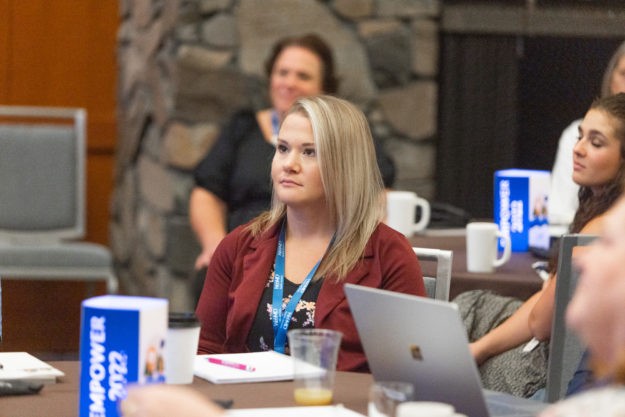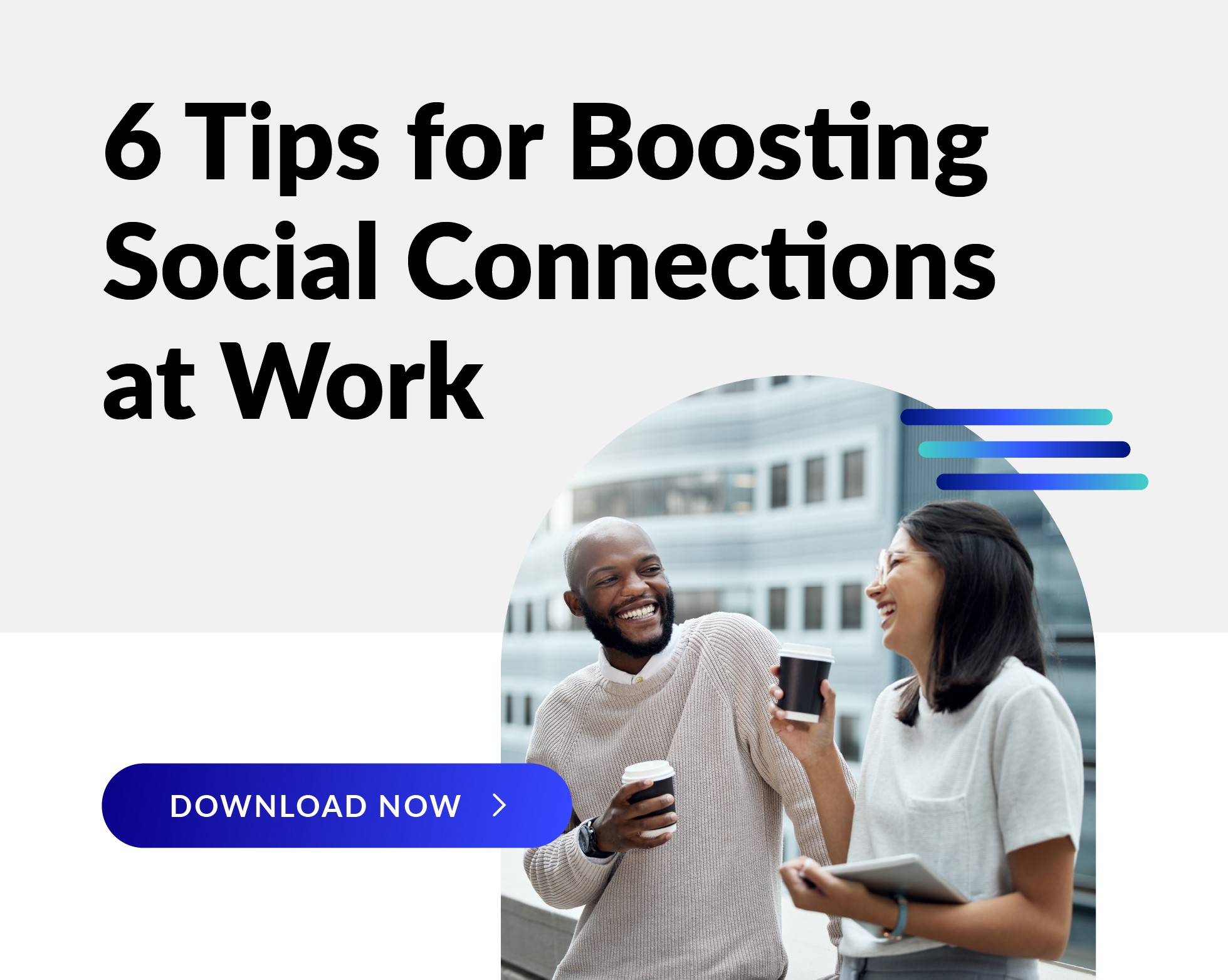 All types of employees—from leaders to middle managers to frontline employees—are experiencing record-high levels of stress, anxiety, burnout, and disengagement—even high performers. During our recent Empower Forum in Chicago, Sheila Hamilton, Founder and CEO of Beyond Well Media, shared her tips for how we can use resilience to combat toxic stress and burnout in our lives. You won’t want to miss this recap…
All types of employees—from leaders to middle managers to frontline employees—are experiencing record-high levels of stress, anxiety, burnout, and disengagement—even high performers. During our recent Empower Forum in Chicago, Sheila Hamilton, Founder and CEO of Beyond Well Media, shared her tips for how we can use resilience to combat toxic stress and burnout in our lives. You won’t want to miss this recap…
Our recent Empower Forum in Chicago brought together clients from around the country to discuss the latest and greatest well-being trends and learn about some exciting new offerings from WebMD Health Services. But we also devoted a portion of the agenda to focusing on our collective personal well-being, including an inspiring session with Sheila Hamilton about caring for our mental health.
Sheila is a five-time Emmy award-winning journalist and host of the Beyond Well podcast (available to WebMD clients). She has written and reported on mental health for more than a decade, including the memoir All the Things We Never Knew, Chasing the Chaos of Mental Illness.
Sheila shared some invaluable tips and skills we can all use to:
- Recognize the signs and symptoms of toxic stress and burnout.
- Make micro-adjustments that can lead to substantial changes before reaching the breaking point.
- Remain engaged, energized, and focused during turbulent times.
Here’s what she had to say:
You are already resilient.
Resilience is something we all have inside of us. We just need to learn the tools for tapping into it and continue to build on it. When we are going through a hard moment, Sheila advised us to “just get through that moment. Don’t think about anything else but getting through that moment. Take a breath. Then take another.”
Tools that can help:
- Body scan—This exercise, during which you focus your attention on your body and notice different sensations as you scan down mentally from head to toe, can interrupt the brain and force it to calm down.
- Personal resilience mantra—A mantra is a word or several words or phrases you repeat to help settle the mind. She shared a favorite of hers, A.R.G.H.—acceptance, resilience, gratitude and happiness.
- The happiness card—Sheila asked us to remember that “happiness is a card in the deck you can always play” and is a choice you make every day.
She also reminded us that we are all on a spectrum of mental well-being and need support from time to time. This is completely normal!
Self-care is never selfish.
It’s a phrase we hear often, but what does it really mean to engage in self-care? We know it’s more than getting a massage or taking a bubble bath. Self-care means carving out enough time in the day to focus on five essential ingredients for good mental health:
- Proper sleep (insomnia is the number one precursor to mental illness)
- Nutrition (80% of serotonin, the “happy” chemical involved in regulating mood, is produced in our gut)
- Hydration
- Quality time with family and friends (social connections)
- Joyful movement (doing things that feel good to your body)
Tools that can help:
- Eliminate or minimize multi-tasking—it actually makes you less productive; try the Pomodoro technique of working for 25 minutes, then getting up to take a 5 minute stretch, movement, or breathing break.
- Form your own board of directors—people who bring you joy or make you laugh; people who will help you stay active and exercise; even someone who can help manage finances.
- Mindfulness—stop, take a breath, observe your surroundings (colors, sounds, people, things, etc.), then proceed.
- Practice self-compassion and forgiveness—acknowledge emotions, practice tenderness toward ourselves, realize that we are all travelers.
Create healthy boundaries.
Boundaries are limits we identify for ourselves that help us define what we need to feel secure and healthy.1 Sheila shared a four-step way to identify and set the boundaries we need:
- Make a list of all of the things that take up your time.
- Separate your list into the things that bring you joy or that you care most about, and what doesn’t bring you joy.
- Choose to eliminate what doesn’t make you happy, including toxic relationships.
- Think about ways to form social support to shore up your boundaries, which might include enlisting the help of friends/family in respecting your boundaries.
And remember, the word “no” plays a very important role in setting boundaries!
Resilience practices that prepare us for life.
Sheila closed her session with two more tools for our toolbox that can help us prepare us for the eventual setback:
- Beauty hunting—this technique is a brain cleanse that encourages us to look for wonder, awe, and for those beautiful moments in life that are already happening and acknowledge them. An example is going on a walk and pointing out the beauty in what you see.
- Who is your why?—imagine you’re at your own funeral… who is in the first row, second row, and who didn’t take the time to get there? What are people saying about you? This will tell you a lot about your “why” so you can focus your efforts where they matter.
So many great tips from Sheila! She left us with the parting advice that if employers want to reach out to the next generation of employees, it’s important to find out their “why”—who and what they love—in order to really tap into their potential and increase their engagement. Need help supporting your employees with resilience building and other mental health tools? Contact us at connect@webmd.net.



